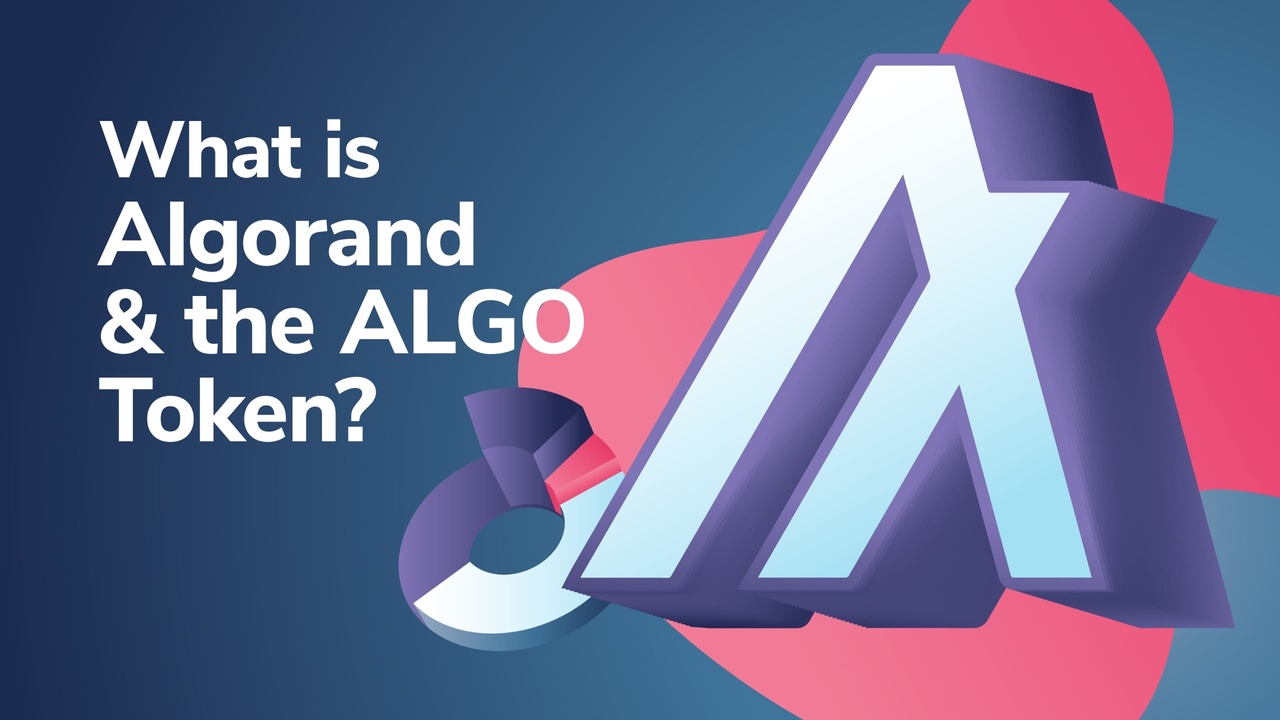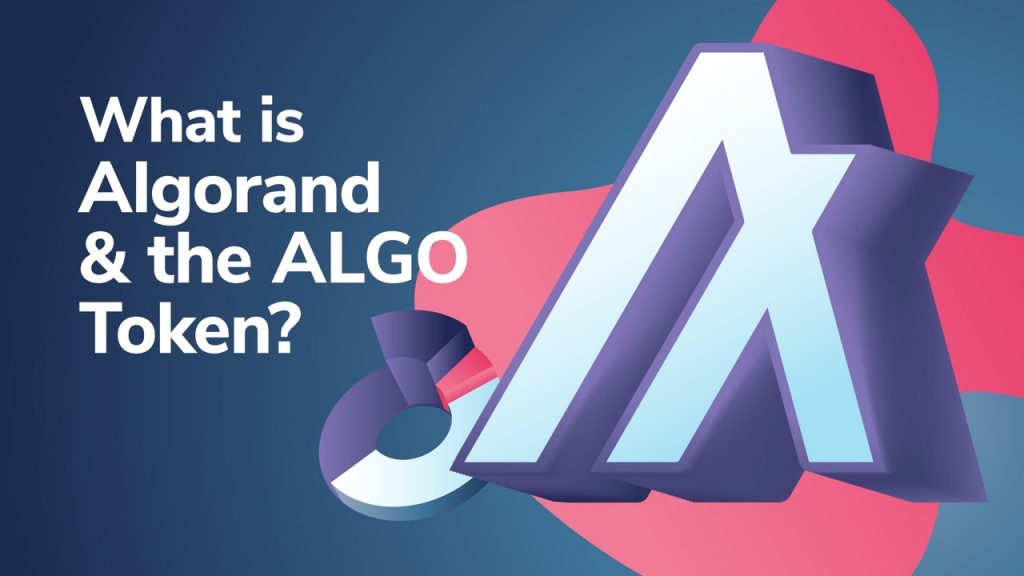
In this article, we’re going to dive deep into the Algorand ecosystem. Also, we’ll discuss the ALGO coin, the novel “Pure Proof-of-Stake” consensus mechanism, and the many features and tools on offer. Plus, we'll take a look at the team behind Algorand, and the Algorand Foundation!
The Algorand protocol was designed as a solution to the “blockchain trilemma”. This means to remain decentralized, secure, and scalable, without compromise. To discover more about how blockchain operates on a fundamental level, be sure to see our Blockchain & Bitcoin 101 course! Ivan on Tech Academy provides a breakdown of technicals with easy-to-follow video-guided tutorials. In this course, we cover everything from mining nodes, UTXOs, and how transactions are validated.
Then, our Ethereum 101 course outlines the foundational differences between the two largest blockchains. This course also covers smart contracts and how decentralized finance (DeFi) applications first became available. To discover how to safely invest in crypto and learn how to avoid scams, see our Crypto Basics course. Join a community of over 30,000 like-minded students today, at Ivan on Tech Academy!
Algorand Foundation
The Algorand Foundation is committed to the future development and sustainable mass adoption of blockchain technology using the Algorand protocol and open-source software. With a dedication to open, permissionless, public blockchains, the Algorand Foundation seeks to create an inclusive and borderless financial ecosystem that allows anybody, anywhere to benefit from an equitable, modern, blockchain-based monetary structure. Decentralization is at the heart of the Algorand Foundation. As such, the Algorand Foundation will oversee a move towards a decentralized governance structure following a successful proposal for the long-term future of the Algorand ecosystem.
What is Algorand?
Algorand is a highly scalable blockchain protocol and cryptocurrency developed to bridge the gap between traditional finance and blockchain technology. With the aim of becoming fully decentralized, Algorand uses the novel Pure Proof-of-Stake consensus mechanism to secure the network. Furthermore, Algorand is creating next-generation financial products and protocols. These tools are designed to enable businesses and individuals to harness the power and utility of smart contract-enabled blockchains.
Algorand also enables users to create and deploy cryptocurrencies, non-fungible tokens (NFTs), securities, and stablecoins. Plus, Algorand technology utilizes a series of robust layer-1 blockchains and co-chains to facilitate atomic token transfers and the issuance of customizable Algorand Standard Assets (ASAs). All of this is achieved in a simple, cost-effective manner. Moreover, Algorand is empowering users to create innovative financial tools and services designed for the future of finance.
The Algorand protocol is designed to be a decentralized, permissionless public blockchain that is highly interoperable and scalable. Also, Algorand has designed “the world’s first Pure Proof-of-Stake foundational blockchain” to service both individuals and businesses. In the future, we can expect to see both private and public blockchain offerings from Algorand, along with layer-2 smart contract functionality.
Algorand Core Protocol
By removing many of the technical hurdles that often hinder mainstream blockchain adoption, Algorand enables users with limited technical knowledge to build and deploy novel, versatile financial tools and services. These tools and services offer many different functions and can play several different roles. Furthermore, the Algorand Core Protocol uses a proprietary “Pure Proof-of-Stake” consensus mechanism to maintain a robust and permissionless blockchain ecosystem.
Pure Proof-of-Stake
The Pure Proof-of-Stake consensus mechanism ensures that complete participation, speed, and scalability are maintained across the decentralized Algorand network. Also, Pure Proof-of-Stake allows for near-instant block confirmation and transaction finality. Furthermore, the Algorand blockchain will never be forked, removing much of the uncertainty that has blemished many well-established blockchain communities.
For a proposed block to be appended to the Algorand blockchain, it must first be approved by a soft vote. The soft vote filters proposals down to one, before a separate committee casts a certification vote. From here, every node in the network receives a certificate for the selected block, which is written into the ledger. Using cryptographic sortition, Algorand selects users to propose blocks for each round. Then, a selected committee of voters must receive a majority vote from participants before a block is certified.
Furthermore, the Algorand Byzantine Agreement protocol is robust enough to tolerate any number of bad actors across the network, providing that honest actors hold a large majority of the total amount of ALGO staked to secure the network. This is because potential bad actors are clueless as to which participant they should attack to successfully corrupt the network. Moreover, by the time bad actors are able to establish any selected participants that could be vulnerable to attack, the target blocks have already been confirmed, and a new selection round initiated.
This consensus mechanism is one of many novel iterations of the Proof-of-Stake (PoS) consensus mechanism. To learn more about PoS and other consensus mechanism models, save our Proof-of-Work vs Proof-of-Stake article for later!
Algorand ASC1 Smart Contracts
Many smart contracts built on first-generation blockchains can be slow to propagate. This can hinder the scalability of any blockchain application and be costly to the user. Algorand’s ASC1 smart contracts offer an advanced, cost-effective, and scalable solution that can service complex and sophisticated applications. Furthermore, ASC1 smart contracts are executed on-chain in a secure, tamper-proof manner. Because ASC1 smart contracts are integrated into Algorand’s layer-1, they inherit the same near-instant finality, scalability, and security.
ASC1 smart contracts can automatically enforce customized logic and rules. When executing ASC1s, users can define the logic and flow of complex smart contracts. These smart contracts can then be used in various modern financial applications. Algorand’s ASC1 smart contracts are written using a new programming language called Transaction Execution Approval Language (TEAL), along with PyTeal, which is a python language binding.
Although Algorand’s ASC1 smart contracts can cater to the most advanced applications, they also come with easy-to-use templates. This significantly lowers the barrier for entry to non-technical users that wish to incorporate smart contracts into their financial products. Plus, Algorand offers stateless smart contract templates that can be used for voting, auctions, crowdfunding, and more!
If you like the idea of deploying your own smart contracts with unlimited customizability, our Chainlink 101 course is a must-see! Ivan on Tech Academy shows students how some of the biggest DeFi platforms (the likes of Aave, Synthetix, and Curve!) are implementing the number one oracle - Chainlink, and how you too can do the same! This course is an advanced Solidity course. For students unfamiliar with the Ethereum programming language, check out our Ethereum Smart Contract Programming 101 and Ethereum Smart Contract Programming 201 courses first. Start your career as a blockchain developer today, with Ivan on Tech Academy.
ALGO Token
The native ALGO token, or the "ALGO coin" as it is commonly known, is the lynchpin of the Algorand ecosystem. The main use case for the ALGO token is as a payment facility to pay for fees within the network. ALGO is available through some of the largest crypto exchanges including Coinbase and Binance. Moreover, the ALGO token has a tokenomic structure including an updated 10-year distribution, ending in 2030.
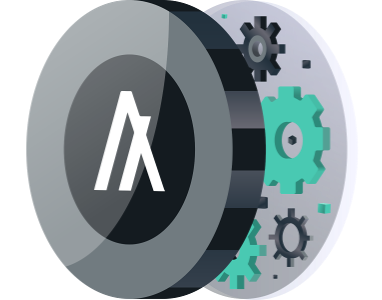
There are 10 billion ALGO tokens that can ever be mined. This can be confirmed and publicly verified through the Algorand blockchain explorer, keeping the official count of the circulating supply. The ALGO coin will be used through various use cases. Firstly, as a Proof-of-Stake blockchain, stakers of the ALGO coin will secure the network and receive rewards in ALGO tokens for doing so. Also, there are ALGO tokens set aside for the Algorand Foundation to ensure consistent development funding.
Algorand Standard Assets (ASAs)
Algorand Standard Assets (ASAs) are highly customizable digital assets that can be used for a range of purposes. They provide a uniform, standardized layer-1 mechanism that can represent many different types of assets on the Algorand blockchain. This includes fungible tokens, non-fungible tokens (NFTs), stablecoins, and much more!
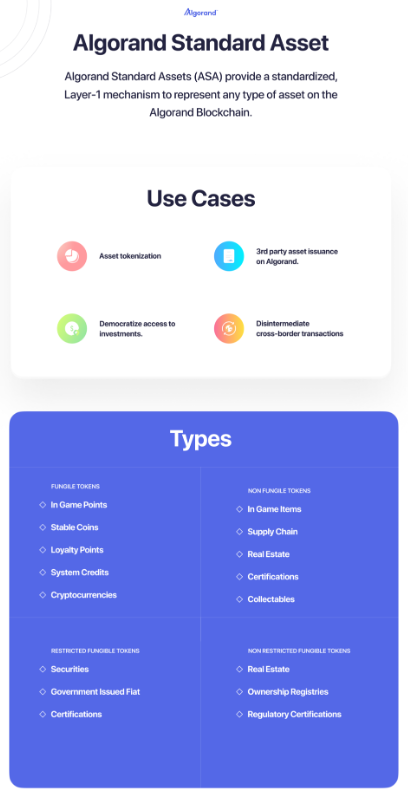
ASAs address many of the common issues experienced when digitizing assets. This includes challenges such as access to global markets, 24/7 transferability, instant settlements, and easily enforceable control of assets. Furthermore, ASAs make compliance, administration, and reporting simple, and straightforward.
One of the key features of ASAs is Role-Based Asset Control (RBAC). This provides “optional and flexible asset controls for issuers and managers for business, compliance, and regulatory requirements”. With ASAs, users can quarantine accounts for investigation and force transfer assets when needed for legal or regulatory reasons. Also, ASAs offer a “flexible asset reserve model for custom business requirements”, along with off-chain asset documentation, asset spam protection, and a whitelisting model for privileged transacting. ASAs are extremely fast, secure, and cost-efficient. ASAs are highly interoperable and hold unique functionality.
Moreover, ASAs make it simple for users to issue versatile, customized assets that are well suited for various use cases. This includes fungible tokens, and non-fungible tokens (NFTs), in-game assets, stablecoins, certifications, real estate, government-issued fiat, and much more!
Yieldly
Yieldly is a new decentralized finance (DeFi) suite offering various financial instruments developed on top of the Algorand blockchain. With partners including CMS Holdings and Longhash Capital, Yieldly is being launched as an IDO (initial DEX offering) through the TrustSwap token launchpad between May 21st and May 26th, 2021. Yieldly will allow developers on Algorand to implement staking and social reward systems within decentralized applications (dApps) built on top of the blockchain.
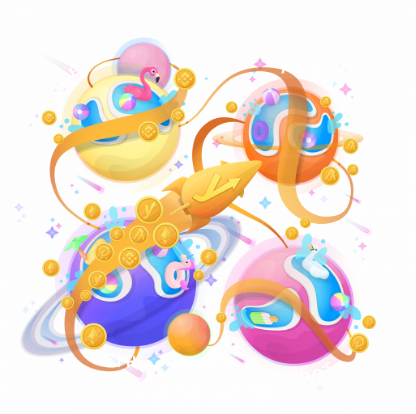
Yieldly is centered around four key elements. The first is the ability for ASA token holders to seamlessly create financial products with purpose-built smart contracts that can be used for non-fungible token (NFT) distribution and yield farming. Similar to PancakeSwap on Binance Smart Chain, Yieldly offers a no-loss lottery; the only such application currently available on the Algorand blockchain. This means that rewards within the ecosystem are aggregated prior to fair distribution to users of the platform.
Yieldly also offers a token bridge to the Ethereum blockchain, expanding the use case and pathways of ASA tokens. Upon further adoption of the platform, Yieldly will introduce other token bridges to additional external blockchains. Plus, as the adoption of the platform increases, the liquidity within the Algorand ecosystem increases. Yieldly plans on launching an automated market maker (AMM) model decentralized exchange (DEX) to unite the ecosystem when there is sufficient liquidity on the platform.
Algorand Summary
Algorand envisions “a world where everyone creates and exchanges value efficiently, transparently, and securely”. Using the ALGO coin and an attractive suite of products, the Algorand Foundation is promoting global trust through a borderless, decentralized financial ecosystem with the Algorand blockchain at its core. Combining elegant technology with simple, intuitive designs, Algorand provides a suite of blockchain-based tools and services with a low barrier to entry. Using the Pure Proof-of-Stake consensus mechanism, Algorand aims to solve the blockchain trilemma of being decentralized, secure, and stable, without sacrifice.
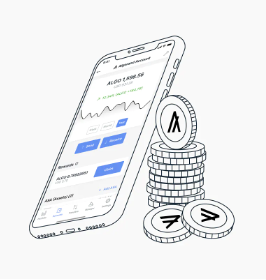
Blockchain technology is the number one in-demand skill according to LinkedIn, with an immensely high demand for professionals with blockchain knowledge. Ivan on Tech Academy provides all the relevant materials and information to be able to get a job in the blockchain and crypto industry! Be sure to see our Blockchain Business Masterclass course to learn how to implement blockchain into centralized IT systems.
Also, see our OriginTrail 101 course to discover how blockchain is streamlining the supply chain industry! Then, check out our FinTech 101 course to learn about regulations around the merging of finance and technology. Ivan on Tech Academy is packed full of courses applicable to a range of learning styles, experiences, and backgrounds. Why not join today with a 14-day money-back guarantee? Also, don’t forget to follow us on Twitter @Academy_IOT! We’d love to know your thoughts about Algorand!
